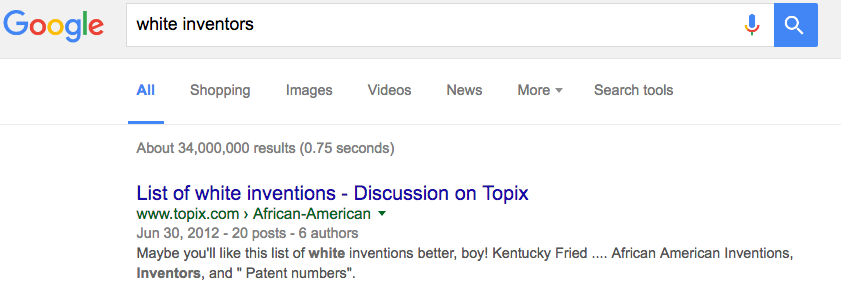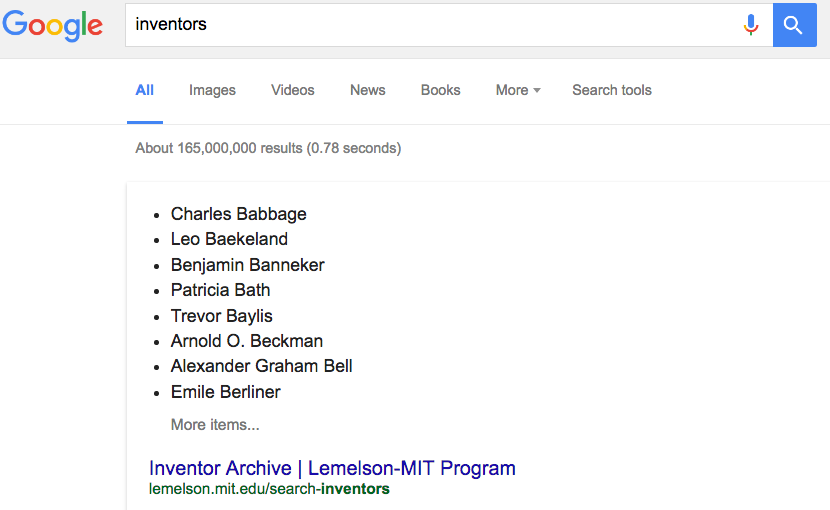Originally posted by Techdread
View Post
But many also don't know how to choose topics or back out of crazy videos.
The videos an infant will see will be "on theme" with stuff for them BUT some of them are autogenerated spam. There was actually a controversy over this stuff called Elsagate.
While criticism of the channels themselves has existed since at least 2016, public awareness of the phenomenon grew in 2017, as it became part of a broader controversy about child safety on YouTube. That year, after reports by several media outlets, YouTube adopted stricter guidelines regarding children's content. In late November, the company started to mass delete channels and videos falling into the Elsagate category, as well as large amounts of other inappropriate videos or user's comments relating to children
Originally posted by dcarrigg
View Post
When a white american inventor is included in content it might in some cases say inventor from new jersey, or 1800s inventor from the US or so on.
Black history month likely has many homework projects to list famous black inventors or some such as well.
So this would create both the web content context to drive the topical association and then the end user query streams.
Note those black history month school child project-driven search queries would be bucketed into specific geographic areas like the US.
https://en.wikipedia.org/wiki/Black_History_Month
No such significant local query bucket for Mexico. (Google Trends shows the phrase at 71 in the US and < 1 in Mexico)
https://trends.google.com/trends/exp...istory%20month
And the Spanish content for that is likely not to read african americano inventor _name_
or such. it might use the spanish word for black & estados unitos or something.
Google has been using user query & clickstream data for a LONG time to influence the meaning of words & what sites are returned for a particular search query.
Back in 2009 an SEO named David Naylor kept seeing some Australia sites showing up in the UK search results on some very specific search queries like [tennis court hire]
https://www.davidnaylor.co.uk/this-d...e-ukserps.html
And if you look at the geographic search volume for those queries there was some bleed over where over 90% of the search queries for the term were from Australia (it was a common phrase in Australia and almost nowhere else).
https://trends.google.com/trends/exp...20court%20hire
In the years since Google has gotten better at localizing user data in terms of folding in clickstream data better to where they give the local country (or in some cases even the local city) more weight.
Originally posted by Milton Kuo
View Post
Anyone who tried to pitch this issue as significant would be quickly deemed as racist, xenophobic, white nationalist, etc.
And the more effort they used to try to spread the story the more they would be viewed as some retrograde deplorable troll.
The above algorithmic artifact doesn't get the press play that some other sorts of "off" algorithmic associations get.
https://www.theverge.com/2018/1/12/1...n-algorithm-ai
No offended party = no media coverage = no toxic backlash = no issue to fix.
Originally posted by dcarrigg
View Post
In most cases (though not all) the right sidebar is content pulled from Wikipedia & other sources, something they call the knowledge graph.
Those listings are not directly paid for, however if you get enough press coverage to get in Wikipedia or such then you might show up there.
And there are exceptions where Google does blend some paid aspects in there, related to things like ads for finding local hotels on geographic queries, links for paid media sources for like books or songs or movies, and then in some cases when Google displays Google Shopping Ads they can appear either in the left column or the right rail.
In some cases Google also lists business appointment booking features in the right rail. In many of those cases those integrations are free rather than paid, though after Google creates a dominant user habit they'll flip the switch and make those features paid.
Originally posted by dcarrigg
View Post
The solution is to promote paid media subscriptions & dig deeper into topics, but that is sort of counter to the whole information wants to be free (& burred in ads) ethos.
















Leave a comment: